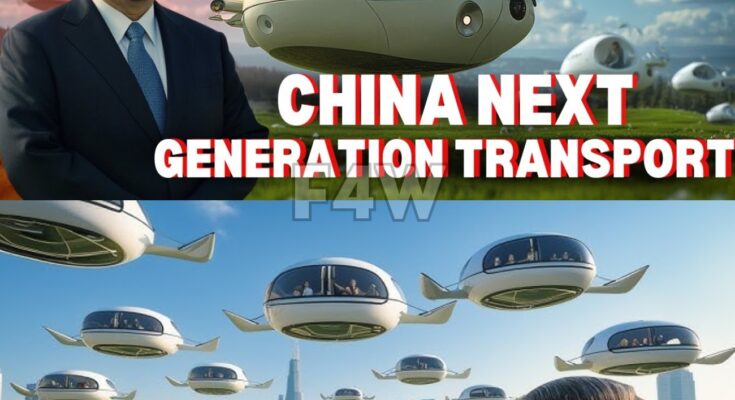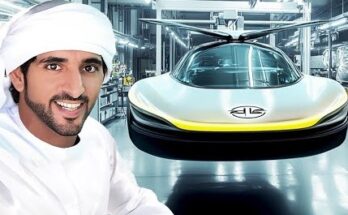In a groundbreaking move that has sent shockwaves through the global transport industry, China has unveiled a new generation of transportation technology that promises to revolutionize the way goods and individuals move across vast distances. This announcement has not only garnered significant attention but has also sparked intense discussions about the implications for international trade, economic power dynamics, and technological competition, particularly in relation to the United States.

The new transport system, which is said to incorporate advanced technologies such as hyperloop systems, autonomous vehicles, and sustainable energy sources, aims to drastically reduce travel time and costs. By utilizing cutting-edge materials and innovative engineering, China is positioning itself as a leader in the transport sector, challenging the traditional dominance of Western nations. This ambitious project is not merely about transportation; it represents a strategic initiative to enhance China’s economic influence on a global scale.
The implications of this development are profound. For decades, the United States has been considered a pioneer in technological advancements, particularly in the fields of aerospace and transportation. However, China’s rapid progress in developing this new transport system raises concerns about the shifting balance of power. The US, which has invested heavily in its own infrastructure and technology, may find itself at a competitive disadvantage if it fails to keep pace with these advancements. This situation could lead to a reevaluation of economic strategies and policies, as American leaders grapple with the reality of a rising competitor.

Moreover, the launch of this new transport technology could significantly impact global trade routes. China’s Belt and Road Initiative has already established a network of trade connections across Asia, Europe, and Africa. The new transport system is expected to enhance these connections further, potentially diverting trade flows and altering established economic relationships. Countries that align with China may benefit from improved logistics and reduced shipping times, while those that do not could find themselves sidelined in the evolving global economy.
However, the announcement has also ignited a debate about the environmental implications of such advancements. While the new transport system claims to prioritize sustainability, critics argue that the construction and operation of high-speed transport networks could lead to significant ecological disruption. Environmentalists are raising alarms about potential habitat destruction, pollution, and the carbon footprint associated with the development of such infrastructure. As the world grapples with climate change, it is essential to scrutinize whether this technological leap forward genuinely aligns with sustainable practices.
In addition to environmental concerns, there are ethical considerations surrounding the rapid development of transport technologies. Autonomous vehicles and hyperloop systems raise questions about safety, liability, and the potential for job displacement. With automation on the rise, workers in traditional transport sectors may face unemployment or the need for retraining. Policymakers must consider how to balance technological advancement with the social responsibilities of protecting the workforce.

The geopolitical implications of China’s new transportation system cannot be overlooked either. As nations navigate the complexities of international relations, the launch of this technology could lead to increased tensions. The US may feel compelled to invest more in its own technological capabilities, potentially leading to an arms race in innovation. This situation not only heightens competition but also raises the stakes for global diplomacy.
In conclusion, China’s launch of a new generation of transportation technology has sent ripples through the global landscape, challenging the status quo and prompting discussions on economic power, environmental sustainability, and ethical responsibilities. As the world watches closely, it is crucial for nations to engage in constructive dialogue and collaboration to navigate the complexities of this rapidly evolving technological frontier. The future of transport is not just about speed and efficiency; it is about shaping the world we live in and the values we uphold as we move forward.



